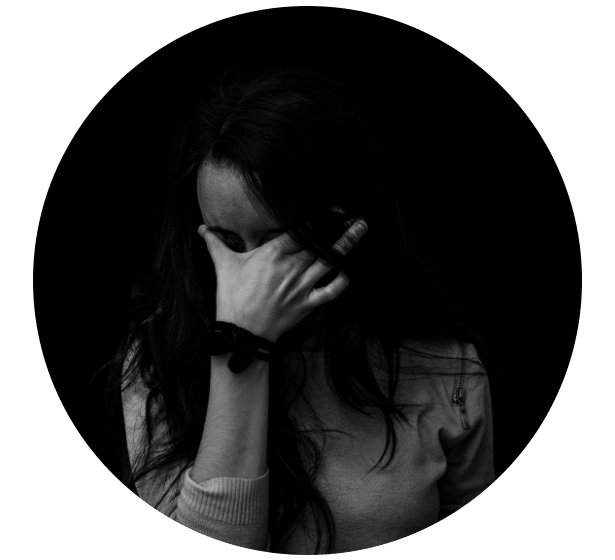What Is Heroin Withdrawal Like?
Worrying about withdrawal symptoms isn’t a reason to avoid getting help for heroin addiction. There are many misconceptions about the detox process thanks to popular culture. But detox is a necessary step in the recovery process, and it can be safe and relatively comfortable when you get help from professional therapists. Treatment programs for substance abuse offer a real chance to get better.
Vogue Recovery Center employs dedicated and caring counselors who have helped countless others get their lives back on track. Our heroin detox center can help you recover from substance use disorders like heroin addiction and move on to a brighter future. You can stop using heroin, we can help.
What Is Heroin?
Heroin is an addictive and illegal drug in the opioid family. It is made from morphine, a natural substance extracted from the seed pod of poppy plants. Heroin has a high potential for abuse and dependence because of its powerful effects on the brain and body.
Heroin is typically found as a white or brownish powder, but it can also appear as a black sticky substance known as “black tar” heroin. The drug can be consumed in various ways, including smoking, snorting, or injecting it into the bloodstream.
Once heroin enters the brain, it is converted back into morphine, which binds to opioid receptors. Along with pleasurable effects, heroin use can also cause a range of dangerous and harmful side effects. Overdosing on heroin can be life-threatening and may result in respiratory failure, coma, or death.

What Causes Heroin Withdrawal?
Heroin withdrawal happens when someone who is dependent on the drug suddenly stops or reduces its use. Withdrawal happens because the body is physically dependent on heroin to function. Stopping use leads to a range of physiological and psychological symptoms. The underlying cause of heroin withdrawal is your body’s attempt to readjust and stabilize after being exposed to the drug for a long time.
When heroin is used often, the brain adapts to its presence by producing less of certain chemical messengers like dopamine. Dopamine is associated with feelings of pleasure and reward. Heroin’s effects lead to an excessive release of dopamine, creating intense feelings of euphoria. The brain becomes reliant on heroin to maintain dopamine levels and to function normally.
When heroin use is stopped, the brain struggles to produce adequate levels of neurotransmitters. As a result, you experience a range of withdrawal symptoms. These can be extremely uncomfortable and distressing. Having a medical team at your side for withdrawal management can make all the difference in successful addiction treatment.
What Are the Symptoms of Heroin Withdrawal?
The process of heroin withdrawal can be challenging and pose potential health risks if you attempt it without medical assistance. How severe withdrawal symptoms are and how long they last varies depending on the level of dependence, frequency of use, and other individual factors.
Some of the most common heroin withdrawal symptoms include:
- Intense drug cravings
- Sweating and chills
- Nausea and vomiting
- Diarrhea
- Abdominal cramps
- Aches and pains
- Anxiety and agitation
- Insomnia
- Fatigue
- Dilated pupils
- Runny nose and teary eyes
Not everyone withdrawing from heroin experiences the above symptoms. Seeking professional help and support through medically supervised detox programs is recommended if you’re trying to quit heroin to ensure a safer and more successful recovery. Medically assisted treatment can help manage symptoms and increase the chances of overcoming heroin addiction.
Heroin Withdrawal Timeline
Detoxing from heroin can be difficult. Everyone’s heroin withdrawal timeline is different in its length and severity. For many, symptoms appear after a day and peak after three days of quitting cold turkey. Many describe the symptoms as being like a cold or the flu. Symptoms occur in three phases. Having a medical professional on your side can be a great help during the process.
The severity and duration of heroin withdrawal symptoms depend on:
- How long you’ve been using heroin
- The amount of heroin you’ve been abusing
- Pre-existing mental or physical health problems
- Your physical characteristics
First Phase
Heroin withdrawal symptoms often start within 12 hours after you stop using heroin. The body goes into overdrive trying to adjust to the chemical imbalance. Opiate and opioid withdrawal tends to grow worse over 48 hours.
First phase heroin withdrawal symptoms may include:
- Intense heroin cravings
- Restlessness
- Insomnia
- Muscle cramps and bone pain
- Dehydration
- Loss of appetite
- Diarrhea
- Agitation
- Anxiety
- Runny nose and eyes
- Dilated pupils
- Sweating
Second Phase
After three days, the brain begins to balance itself out. You begin to adjust to life without heroin in your body.
Withdrawal symptoms during this period may include:
- Goosebumps
- Sudden chills
- Abdominal cramping
- Vomiting
Third Phase
The third phase of heroin withdrawal often feels like a bad cold. You may have lingering aches and pains. You may feel tired and have a runny nose. These symptoms can persist for up to a couple weeks.
Heroin withdrawal symptoms at this point in recovery may include:
- General malaise
- Anxiety
- Insomnia
- Mild to moderate depression
It’s important to remember that heroin withdrawal and detox are temporary. Addiction medicine professionals can help you through this first step in recovery. Once you’re feeling better physically, you’ll be able to focus on the treatment that will help you get your life back on track.
Medical Supervision for Heroin Withdrawal
Withdrawing from heroin can be uncomfortable. Having a medical detox team at your side during the process can make all the difference in recovery. Vogue Recovery Center is staffed with skilled and experienced substance abuse treatment professionals. Our addiction recovery programs aid in long-term recovery from heroin abuse. Opioid addiction treatment is crucial for those who want to turn their lives around and reach sobriety. Undergoing medically assisted detox for heroin helps keep you safe if your withdrawal symptoms become severe. Medical detox professionals also ease discomfort and cravings. Detox should always be followed with an opioid addiction treatment program.
Medications Used for Heroin Withdrawal
Medication is often used to help treat heroin addiction and withdrawal. Medication-assisted treatment (MAT) should only be conducted by a professional and licensed addiction treatment counselor.
Some medications used for heroin withdrawal include:
- Methadone: Methadone is a synthetic opioid medication. It’s commonly used as a part of opioid replacement therapy for people who are addicted to heroin or other opioid drugs. It is used to manage withdrawal symptoms and cravings associated with opioid dependence.
- Buprenorphine: Buprenorphine is another medication commonly used in the treatment of opioid dependence. Like methadone, buprenorphine is used to manage withdrawal symptoms and cravings associated with opioid withdrawal. It binds to the same opioid receptors in the brain as heroin and other opioids but produces a milder effect. As a result, it can reduce withdrawal symptoms and cravings without producing the intense euphoria of full opioid agonists like heroin.
- Naltrexone: Naltrexone is an opioid receptor antagonist, meaning it blocks the effects of opioids by binding to the same receptors without activating them. It’s used primarily to prevent relapse rather than manage withdrawal symptoms.
Aftercare for Heroin Withdrawal
Once you go through heroin withdrawal, aftercare is critical. Withdrawal is just the initial phase of recovery, and ongoing support and strategies are essential to help you build a new, drug-free life.
Working with a professional treatment center offers a better chance of recovery. The team at Vogue Recovery Center is skilled and experienced in the field of addiction recovery. Our programs and therapies are evidence-based and rooted in dignity and compassion. Your therapist can help provide a detailed aftercare plan to aid in long-term sobriety. Formal treatment for heroin withdrawal provides a level of support and guidance that you cannot get when you try to recover on your own.
Treatment for Heroin at Vogue Recovery Center
Coping with heroin withdrawal on your own is not smart. Many heroin users relapse during withdrawal because the symptoms are so severe. Vogue Recovery Center provides supervised heroin detox to keep you safe and remove discomfort. Our medical team is skilled at managing withdrawal symptoms. We use the latest medications and treatment therapies in our addiction programs.
Our unique levels of care can help provide a personalized approach to treatment. The levels of care at Vogue Recovery Center include:
- Medical detox: Detox is the first step in the recovery process. Our team of therapists helps with withdrawal management and treatment so you can detox in a safe and comfortable environment.
- Inpatient treatment: Residential treatment involves spending 24/7 at our treatment facility. You attend treatment every day learning valuable tools and coping mechanisms. Inpatient treatment involves behavioral therapy and holistic practices.
- Partial hospitalization program (PHP): A PHP allows you to live at home or in our sober living homes while attending treatment five days per week. A PHP is the start of your transition back to your life after recovery. It builds on the skills and tools you learned in inpatient treatment.
- Intensive outpatient program (IOP): An IOP involves between 9 and 15 hours of treatment per week. It allows for more flexibility in recovery for other obligations in life and is an important step in transitioning back to your normal life.
- Outpatient rehab: Outpatient recovery allows the most flexibility in heroin treatment. You attend treatment once or twice per week. The rest of the time, you live and work or go to school like normal. Outpatient rehab is a great place to build a support system to rely on after you finish our treatment programs.
Heroin addiction recovery starts with Vogue Recovery Center. Our admissions team is available for insurance verification or to answer any questions you may have about our heroin rehab program. Call our treatment center today and find the therapy program that can help you. You don’t have to endure drug addiction any longer. We are here to help.

Medically Reviewed by Kelsey Jones, MS, LPC

Author Evan Gove


